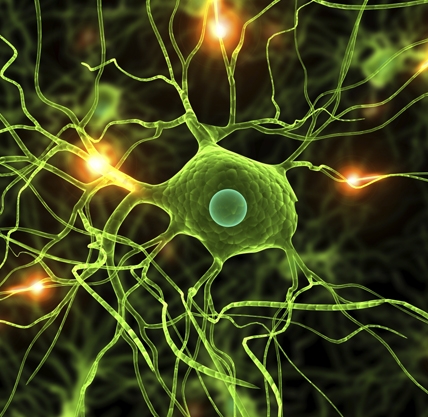
My son had a moderate TBI 10 years ago at the age of 6. He fell 30 feet and injured the right prefrontal lobe area in his brain and lost vision in his right eye. He had a broken skull along with multiple facial fractures. He has had multiple neuropsychology evaluations completed over the time period. My questions are:
- Should a neuropsych evaluation be customized to the area of injury?
- Does a neuropsych evaluation actually test areas of weakness due to the TBI?
I have researched TBI and am concerned about the results from these evaluations. Do neuropsych evaluations test TBI efficiently? More specifically, they seem to test what the child already knows but don’t test how and if the child can learn new information. Can you shed some light on this for me?
Typically, a comprehensive neuropsychological evaluation will look at the function of many different areas of the brain. While the specific tests may vary based on the nature of the injury and the questions to be answered by the evaluation, most neuropsychologists have a relatively standard battery that they start with.
The testing should cover a broad spectrum of cognitive functions so that the neuropsychologist can determine not only which areas are stronger or weaker in comparison to the larger population, but also what the individual’s own capabilities are. Testing is only one aspect of a comprehensive neuropsychological evaluation. Additional information may be gained through a clinical interview, examination of medical records, imaging results, behavioral observation, and questionnaires completed by parents, teachers, or others who know the individual with the brain injury. All of these considered together with testing results allow the neuropsychologist to determine areas of strength and weakness, and to decide what is attributable to the TBI.
The crux of a neuropsychological assessment is not a measure of what the child, like your son, knows. Most of the tests that make up the neuropsychological battery — which is different from a psychological or academic assessment — are tasks that require the individual to take in new information, and manipulate it in some way. These measures look at how — and how well — the child is able to meaningfully manipulate this information. The individual may be required to remember the information, to rearrange it to make something new, to use it to draw an inference about something else, to copy it quickly, or any number of other tasks of varying complexity. The neuropsychologist observes and records both the results and the process of obtaining the results. Thus, the report — especially for a school-aged child — should talk about how the child best learns new information, and what types of supports and strategies will optimize his or her performance. It is sometimes necessary to specifically ask for this type of information when you are arranging for a neuropsychological assessment.
There are limitations to any office-based assessment. When testing is done in a quiet one-on-one setting, the child has the full attention of the evaluator. In a classroom, with lots of distractions, a child’s performance and behavior can look quite different. If you have specific concerns about your child’s ability to function in a classroom setting, ask if someone is available to observe your child in that setting. You can also provide written permission for the neuropsychologist and the classroom teacher to compare notes.
When looking for a neuropsychologist, find out if he or she has experience in rehabilitation and/or special education in order to find someone who is likely to be able to provide concrete and practical intervention recommendations.
About the author: Celeste Campbell, PsyD
Dr. Celeste Campbell is a neuropsychologist in the Polytrauma Program at the Washington, DC Veterans Administration Medical Center. She has a long history of providing cognitive psychotherapy and developing residential behavioral management programs for children and adults.


Comments (9)
Please remember, we are not able to give medical or legal advice. If you have medical concerns, please consult your doctor. All posted comments are the views and opinions of the poster only.
Anonymous replied on Permalink
I am not heard. I can’t get assistance as hard as I have tried. I have one foot nailed to the floor. The anxiety by so much coming into my head creates auras. Now headaches. Functions are bad enough without that.
noreen c henderson replied on Permalink
I had a ruptured brain aneurysm in 2015. I was in mass general for one month. My Dr said I would not remember the hospital stay because my memory bank was shut down, but he said I would return to normal and my memory would get better. It has gotten a lot better since then, but my short term is driving me nuts. I did have a psych eval done; the conclusion was I had anxiety. He said due to my injury; it takes me a little longer to get things right.
My question is, is there any Dr. I can see that can help me cognitively? I have played memory games word games and everything known to mankind for three years. I lose things constantly, phone, my vape cigarette and little things like that all day long. I need some kind of help; it makes me nuts! I was always sharp as a tack. Your insight would be deeply appreciated.
Sincerely,
Noreen
GRAY, Wm. Allan replied on Permalink
Very useful Article here.
Thank you.
Anonymous replied on Permalink
I'm struggling as a caregiver to assess what will help my step-son who is 25 yrs & suffered TBI at age 5. My husband refused to have ongoing neurological evaluations in fear of what Comment #1 mentioned, he didn't want him to somehow be pigeon-holed and create further self-esteem issues as he got older. But now we're faced w/an unthriving, unemployable, marijuana addicted young man and at a loss to find a path of self-sufficiency for him. We would welcome any counseling or programs that might be able to put him on a path and educate us too.
Anonymous replied on Permalink
I agree with meaningless. 1 test 1 day and they can take your dreams away of ever getting better from a tbi. If we would have listened to the neurological testing results and the neurologists recommendations our son would be living in a nursing home putting pegs in a hole.
Anonymous replied on Permalink
Wendy replied on Permalink
I was just wondering how you are doing now. If the test was correct you would be in the latter stages of dementia.
Anonymous replied on Permalink
Sam P. replied on Permalink
I have never been diagnosed with TBI or the like but about 6 to 7 yrs ago I was beat up by a man I was dating & was ashamed embarrassed & angry with my self for letting this happen & afraid he would go to prison, that I never went to the dr or reported the event. I've only recently realized that this incident may have caused a brain injury. He beat my head on a passenger door window on the one side & punch my head on the other, would break & then he would do it over again...and again...and again. I was unable to move, eat, drive for three days all I did was sleep & potty if needed. On the left side of my head my ear & head were literally black in color & for a week I was in fear I may lose part of my ear but I relented & didn't go to the dr for this either. I managed to drive myself home after three days as I was left to die or whatever for that much time & then assumed the same position in my bed for a week. Since this event, gradually I have experienced times of extreme dizziness vertigo headaches anger outbursts social problems slow responses to questions unable to form or spell certain words numbness & tingling on my left side changes in my personality....overtalkative, talking over others or too quiet. Needless to say I've lost friends & family over this. It never dawned on me til recently, since the symptoms are worseiing causing severe depression anxiety restlessness sleeplessness etc...that I thought to myself that this may be the cause. I read something about TBI & I burst into tears sobbing & thinking immediately back to the event & realized how bad it was & how lucky I was to be alive. He even said to me the next day....your lucky your not dead, I could've killed you. He was right & now I know that my life will never be the same. It's now that I need to find help but don't know who to see first. I live alone & i'm scared that if my symptoms progress my work life will be more affected than it is now. Do I need a diagnosis, MRI to move forward::? help needed in Medford oreegon please.